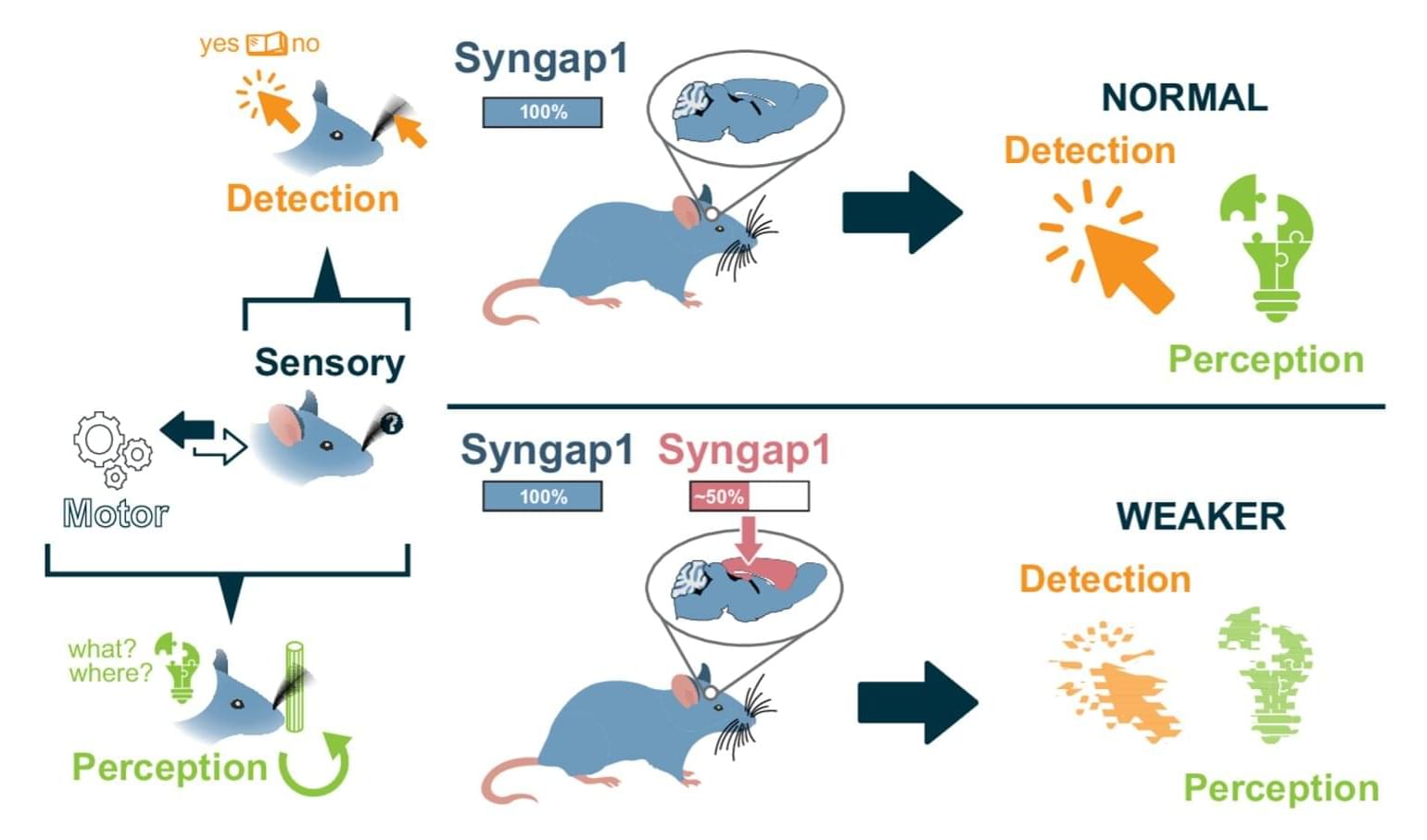The SYNGAP1 gene, which supports the production of a protein called SynGAP (Synaptic Ras GTPase-Activating Protein), is known to play a key role in supporting the development of synapses and neural circuits (i.e., connections between neurons). Mutations in this gene have been linked to various learning disabilities, including intellectual disabilities, speech and language delays, autism spectrum disorder (ASD), and epilepsy.
Researchers at the Herbert Wertheim UF Scripps Institute for Biomedical Innovation & Technology recently carried out a study aimed at better understanding the genetic mechanisms via which the SYNGAP1 gene contributes to healthy cognitive function. Their findings, published in Nature Communications, suggest that the autonomous expression of this gene in the cortical excitatory neurons of mice promotes the animals’ cognitive abilities via the assembly of long-range neural circuits integrating sensory and motor information.
“Our paper builds on our ongoing research into how major risk genes for mental health disorders, including autism, regulate brain organization and function,” Gavin Rumbaugh, senior author of the paper, told Medical Xpress. “The field knows the major risk genes that directly contribute to cognitive and behavioral impairments that lead to diagnosable forms of autism and related neuropsychiatric disorders in humans.
